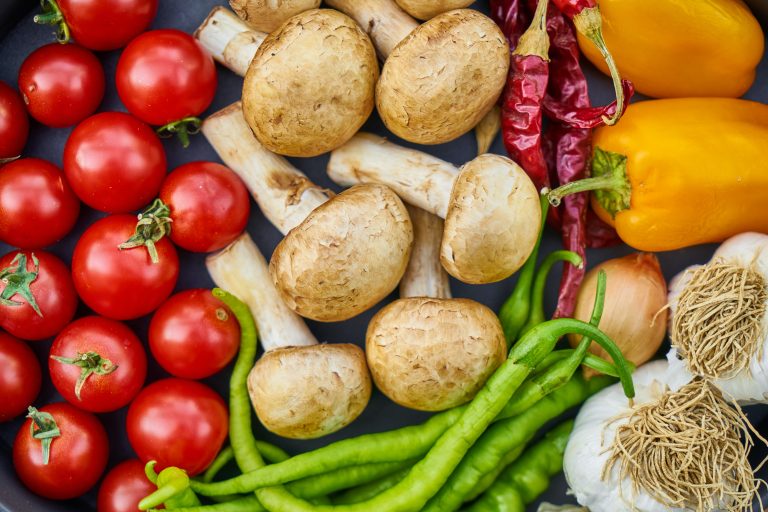
“If nature could talk it would ask us
to listen and choose organic!”
This quote is the theme for Organic September 2022, a campaign started by the Soil
Association to raise awareness of the benefits of buying organic food and
supporting organic farming practices.
The Soil Association developed the world’s first organic standards in the 1960s which
are the rules defining how an organic product must be grown, farmed or made. It has higher organic standards than required by GB Organic Regulations in the areas of:
- Animal welfare,
- Protecting human and animal health;
- Safeguarding the environment;
- Protecting the interests of organic consumers.
You can read more about their standards in detail here.
You can check out our Instagram for more information on Organic September.
Why organic?
The overuse of artificial chemicals and pesticides is harming the natural world and the wildlife. Choosing organic is one way to support healthier soils, more wildlife and the planet. Organic farms are havens for wildlife and provide homes for bees, butterflies and birds. On average, plant, insect and bird life is 50% more abundant on organic farms (Go Organic).
The benefits of organic food:
· Contain fewer pesticides.
· Organic food is often fresher because
it doesn’t contain preservatives that make it last longer.
· Organic foods often have more
beneficial nutrients e.g. higher in antioxidants than conventional intensive
farm foods.
· Organically raised animals are not
given antibiotics or growth hormones but instead are given all organic and
hormone and GMO free feed.
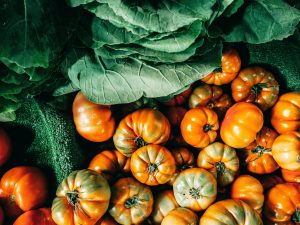
Why are pesticides and fertilisers so bad?
Pesticides are a form of pest control that is usually sprayed on crops in the agricultural industry which destroys insects weeds and other ‘pests’ – chemical substances include herbicides, insecticides and repellents. These chemicals then contaminate the air, soil and water in the area and also negatively impact and harms other species such as plants, fish, birds, bees and insects. They have also been found to be harmful to human health.
Chemical fertilisers are applied to crops to increase growth and boost yield. They often contain phosphorus, nitrogen and potassium compounds that end up in water and soil. Eutrophication is when fertilisers contaminate water which causes high amounts of algae growth that reduce oxygen levels in the water killing fish and other organisms living in the environment. It also leads to soil acidification and depletes minerals from the soil.
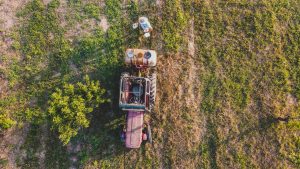
Why is organic more expensive?
During 2020, more than £50 million per week was spent on organic food and drink in the UK. As people spent more time at home planning and preparing meals during lockdowns and the pandemic there was a greater awareness of climate change and human impact on the planet. This was a positive as the National Food Strategy has called for urgent changes to the UK food systems to ensure a healthy, stable food future for everyone.
However, the challenges include that the climate is already changing and this means more extreme weather is impacting crop yield. These factors could result in increasing food prices, especially organic food – which is one of the main barriers to it in the first place!
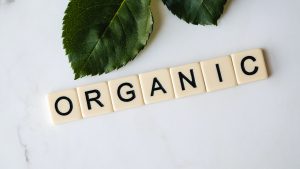
One of the reasons that organic food is more expensive than non-organic food is because production is more expensive for organic farmers and there is higher demand than supply. Supermarkets are also inclined to charge more for organic products as they are positioned as a premium product.
However, analysis has shown that the switch to organic doesn’t have to be ridiculously expensive. Products such as: houmous, mushrooms, butter, onions and milk are normally the least expensive items to buy organic!
What can you do beyond September to try more organic?
Sign the petition by the Organic Trade Board to call on the new Prime Minister to protect nature in policy and stop the use of pesticides here.
If you are able to, try swapping out a few of your usual products for organic ones where the prices are similar. This also applies to clothing and beauty products not just food!
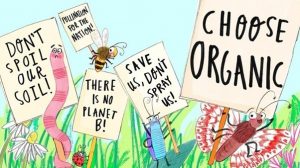
Sources:
https://www.gardenorganic.org.uk/organic-food-better-you
https://www.bbcgoodfood.com/howto/guide/is-organic-healthier
https://downfieldfarm.com/blog/harmful-chemical-fertilisers-pesticides
https://onehome.org.uk/lifestyle/21-food-and-drink/455-how-is-the-organic-food-industry-changing